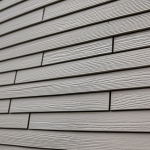Understanding Durable Pool Decking
In choosing durable pool decking, it’s crucial to consider elements tailored to the UK’s weather conditions. Pool decking serves not only as a stylish enhancement of outdoor spaces, but also as a functional surface needing to endure varying weather patterns and intense usage. When assessing durability, certain characteristics become focal:
- Moisture Resistance: In the UK, where rainfall is frequent, selecting materials resistant to water damage is essential to prevent warping or decay.
- UV Stability: Ensuring the decking can withstand sun exposure without fading or degradation maintains its aesthetic appeal.
- Frost Resistance: Materials should tolerate freezing temperatures, avoiding cracking and structural compromise.
These inherent qualities in pool decking materials define their longevity and performance. Therefore, a well-considered selection of decking can enhance durability significantly, making it a sound investment for outdoor leisure areas.
Have you seen this : Top strategies to protect your uk swimming pool during long-term closures
Common Pool Decking Materials
Choosing the right pool decking material involves considering various options suited to the UK’s climate. There are multiple types of decking to explore, each with unique characteristics.
Natural Stone
Natural stone delivers a timeless look and exceptional durability. It resists UV rays and is frost-resistant, making it ideal for the UK’s fluctuating weather. However, its cost can be high, and it requires professional installation to prevent water-related issues. Keep in mind the regular maintenance needed to preserve its aesthetic beauty.
In the same genre : Top strategies to protect your uk swimming pool during long-term closures
Composite Decking
Composite decking is a popular choice due to its blend of wood fibers and plastic, offering durability with minimal maintenance. It’s moisture-resistant and not prone to warping, making it suitable for rainy climates. However, caution is advised as direct UV exposure may cause fading over time. It’s relatively cost-effective compared to natural stone and offers easy DIY installation.
Concrete & Pavers
Concrete and pavers offer flexible design options with robust durability. These materials withstand freeze-thaw cycles effectively, though they can be slippery when wet. Cost-wise, they sit between natural stone and composite decking, with installation typically requiring skilled professionals. Sealing and periodic cleaning will help maintain their appearance over time.
Pros and Cons of Each Material
When considering pool decking options, the advantages and disadvantages of each material significantly impact long-term enjoyment, particularly under the variable UK weather conditions.
Natural Stone:
- Advantages: Natural stone offers a classic look with excellent durability. It remains cool underfoot and is inherently UV stable, reducing the risk of sun-related damage.
- Disadvantages: The primary drawback is its cost, reflecting both the material itself and the skilled installation required. It’s also heavy, which may necessitate additional structural support.
Composite Decking:
- Advantages: Known for minimal maintenance, composite decking is highly moisture-resistant, ideal for rainy environments. It’s more cost-effective than natural stone and easily installed via DIY methods.
- Disadvantages: Despite its positives, it may fade over time if exposed to excessive sunlight.
Concrete & Pavers:
- Advantages: These materials offer versatile design choices and perform well in freeze-thaw cycles, providing robust resilience to UK winters.
- Disadvantages: They can become slippery when wet and require regular sealing to maintain their appearance. They fall in a mid-range cost category, often necessitating professional installation.
Understanding these material strengths helps you compare effectively and make an informed decision tailored to your environment and preferences.
Cost Factors and Budgeting for Pool Decking
When investing in pool decking, understanding the pool decking costs is essential to balance both initial expenditure and long-term value. Each material offers distinct value for investment, impacting the overall budgeting approach.
Cost Breakdown
Natural Stone tends to command a higher price due to its intrinsic elegance and durability. Both the stone itself and the skilled installation required elevate costs. However, this premium investment often translates into long-lasting quality and aesthetic appeal.
Composite Decking presents a more cost-effective alternative. While the initial outlay is lower than natural stone, it provides excellent resistance to weather impacts, minimizing future repair expenses. This material is an excellent choice for those looking for a mid-range budget solution that offers durability with minimal upkeep issues.
Concrete and Pavers, occupying a cost spectrum between stone and composites, offer flexibility in design without compromising resilience. While their pool decking costs may require a higher initial expenditure for professional layouts, the longevity they provide justifies the financial commitment over time.
Budgeting Strategies
Consider long-term costs, including maintenance and repairs. Budgeting for decking should anticipate routine upkeep to preserve material integrity and visual appeal. For instance, setting aside funds for sealing and cleaning, especially concerning concrete and pavers, enhances longevity.
For quality assurance, ensure the budget accommodates professional installation where necessary. While DIY installations may reduce labor costs, professional expertise can mitigate risks of improper placement, particularly with natural stone, securing a more durable outcome.
Strategic planning and savvy material selection ensure that your pool decking investment thrives under UK weather conditions, delivering enduring satisfaction and functional excellence.
Maintenance Tips for Longevity
Proper pool decking maintenance is crucial for ensuring the longevity of your investment, especially given the UK’s weather conditions. Each material type requires specific care to maintain its appearance and structural integrity.
Regular upkeep for composite decking involves simply cleaning with a mild soap and water solution to remove dirt and debris, reducing the buildup of mold and mildew. It’s best to avoid using harsh chemicals that can degrade the material or the protective coating. Natural stone, with its elegant appeal, needs sealing every few years to protect against staining and water penetration, especially in the rainy UK climate. Regular brushing and rinsing will also help maintain its pristine condition. Concrete and pavers benefit from sealing, which prevents moisture ingress and freeze-thaw damage. Pressure washing once a year helps keep these surfaces clean and enhances their appearance.
Seasonal maintenance is also important. In winter, prevent snow and ice buildup by using a plastic shovel instead of metal tools, which can damage surfaces. A deck-friendly deicer is a safer option for eliminating icy patches without harming the decking. During the rainy season, ensuring the drainage system is clear can prevent water accumulation, reducing the risk of damage from standing water.
Understanding these maintenance practices can help prolong the life of your decking. Avoid common pitfalls such as neglecting regular cleaning or using inappropriate cleaning solutions. By following these upkeep tips, you can enjoy a beautiful and durable pool decking experience throughout every season.
Expert Advice and Installation Considerations
Navigating the installation of pool decking involves making informed decisions to ensure both durability and safety. When it comes to pool decking installation, several key factors contribute to a successful and enduring outcome.
Firstly, the importance of professional installation cannot be understated, especially with materials like natural stone. Hiring experienced contractors ensures that materials are laid correctly, reducing future risks such as uneven surfaces or poor drainage.
In contrast, composite decking often provides a more straightforward DIY option, thanks to its lighter weight and ease of assembly. However, even in DIY scenarios, experts recommend paying close attention to manufacturer guidelines to prevent errors that could affect longevity.
For materials like concrete and pavers, precise leveling and joint spacing are crucial to avoid cracking and shifting over time. Expert advice suggests considering local weather impacts, such as freeze-thaw cycles, when planning installation. This could influence decisions on grout and sealant selection, which are critical for maintaining structural integrity.
When it comes to hiring contractors, it is important to verify their credentials and experience with specific pool decking materials. A skilled contractor not only manages efficient installation but also provides valuable insights on material selection suited to the UK’s weather conditions.
In summary, whether opting for professional contractors or a DIY approach, attention to detail and adherence to expert recommendations play a pivotal role in extending the lifespan and appearance of your pool decking.
Case Studies and User Testimonials
For many, real-life pool decking success stories and user experiences offer invaluable insights into making informed decisions for their outdoor spaces. By reviewing testimonials, you can validate the performance of different pool decking materials in various UK weather conditions.
Success Stories and Lessons Learned
One case study in Surrey highlights the selection of natural stone. Despite its higher initial pool decking costs, users appreciated its ability to withstand both rainy summers and frosty winters. The elegant stone surface provided both durability and aesthetic charm, demonstrating its value over time. Users emphasized the importance of professional installation due to the heavy nature of the material, mitigating risks of water pooling and subsequent damage.
In a contrasting scenario, a homeowner in Manchester chose composite decking for its ease of pool decking installation and minimal maintenance needs. Despite initial concerns over potential UV fading, the decking maintained its appearance thanks to strategic placement that minimized constant sun exposure. This choice proved to be effective under frequent rain, supporting positive user feedback and endorsement for those seeking a cost-effective and versatile solution.
Lastly, in Edinburgh, a family opted for concrete and pavers, emphasizing the material’s adaptability to intricate designs and robust performance throughout cyclical freeze-thaw conditions. Success here came from choosing a high-quality grout and sealant, extending the lifespan of their decking and adding significant value to their investment. Testimonies recommend regular sealing and cleaning practices to preserve its structure and appearance.
These user experiences testify to the importance of carefully selecting materials suited to specific regional climates while also considering expert advice and comprehensive maintenance for long-term satisfaction.




